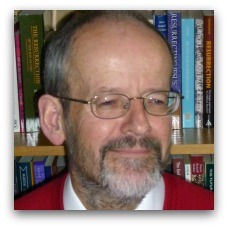 This week I have been at the 2017 ANZATS Conference in Adelaide. The theme this year has been “Kinship & Family in Contemporary Australia and New Zealand.” The two international guests have given excellent plenary addresses, and the elective sessions that I have attended have been good. Of course, one of the best things about Conferences is catching up with peers from around the country—and from New Zealand, and meeting new friends.
This week I have been at the 2017 ANZATS Conference in Adelaide. The theme this year has been “Kinship & Family in Contemporary Australia and New Zealand.” The two international guests have given excellent plenary addresses, and the elective sessions that I have attended have been good. Of course, one of the best things about Conferences is catching up with peers from around the country—and from New Zealand, and meeting new friends.
Stephen Barton from Durham, UK has given two addresses on the topic of marriage, the first providing a biblical perspective and the second, an historical perspective from the Christian tradition. Both accounts were descriptive rather than prescriptive, and portrayed the complexity and plurality of images and approaches in both the Bible and the Christian tradition. Several things stood out to me:
- Barton rejects a “sola scriptura” approach to the question of a Christian ethic of marriage and family. Several statements in the lecture make his position clear: “‘The Bible says’ is no way to establish a ‘biblical’ understanding of ‘family.’” He prefers a more “Anglican” approach—Lex orandi, lex credendi (which translates roughly as “the law of praying [is] the law of believing” and means that prayer and worship lead to belief and theology)—“the Bible released from rationalism opens a depth of biblical resources for prayer and moral reflection.” And again, “sola scriptura is too narrow a foundation for a full doctrine or ethic of marriage and family.” Barton views marriage as a complex, many-layered phenomenon with natural, spiritual, legal, social, cultural, and sacramental aspects. He eschews reductionist approaches which would reduce marriage to just one thing. Thus while scripture is an indispensable source for a Christian ethic of marriage and family, other sources of moral reflection must also be consulted, including an understanding of natural law, the history of development of concepts and practices of marriage, cultural forms and traditions, philosophical reflection on the “goods” of marriage, etc.
- Barton views marriage primarily through an eschatological lens: a wise reading of Scripture adopts a prophetic-eschatological perspective that disrupts cultural values in the light of the coming kingdom. I found this intriguing, especially since biblically, it appears grounded more in creational frame of reference. Nevertheless, his treatment of the biblical vision was very insightful and challenging.
- His recounting of the development of marriage in historical and ecclesial perspective was incredibly interesting and illuminating. The lecture was peppered with such gems as “the [medieval] Roman Catholics understood marriage a natural origin, a legal form, and a spiritual significance.” Or, the Roman Catholic understanding of marriage as a sacrament was transformed in Protestantism: Luther viewed it as a “social estate,” Calvin in terms of a “covenant,” and Anglicanism as a “little commonwealth.” Barton’s discussion of each of these was rich in detail and insight.
In the end, says Barton, marriage is indeed a complex institution, essential for personal flourishing and familial and societal well-being. He understands it especially in terms of a practise of life-long openness to the other, in a context of deepening hospitality and self-giving.